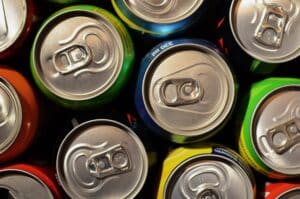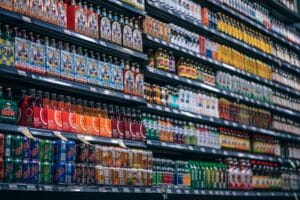
Food and beverage manufacturing sectors are overseen by complex regulations that fluctuate between universal consumer protection protocols and those that vary according to individual subsector circumstances. Beverage manufacturers that focus on non-alcoholic products must demonstrate compliance by adhering to several core provisions regarding ingredient labeling, establishing quality control procedures, and maintaining documentation for each process. As with other consumables, non-alcoholic beverage products must be able to demonstrate consistent cleanliness and safety to remain compliant.
Food and beverage manufacturers are expected to implement standardized practices including hazard analysis and critical control points (HACCP), sanitation standard operating procedures (SSOP), and other current Good Manufacturing Practices (CGMP). Demonstrating consistent compliance with these methods requires a system that is able to capture data across every stage of production and distribution and deliver accurate reporting for each. SWK developed the Sage X3 Food & Beverage bundled solution to deliver improved insight to food and beverage manufacturers to allow them to streamline their compliance procedures.
Here are three common regulatory pain points for beverage manufacturers and a few ways SWK’s Sage X3 Food & Beverage compliance software bundle can address them:
Prominent Ingredient Labeling
Food and beverage regulations universally mandate that manufacturers apply easily readable labeling to products that is displayed in a noticeable manner. These labels must be prominent enough to be seen by consumers without exerting additional conscious effort to locate them. They must also include a list of all ingredients used to create the product or a legally acceptable substitute categorization in certain cases.
The ingredients and processing methods used in manufacturing a beverage product can significantly affect the rules of its labeling, as those materials and techniques can alter its intended classification as an item. Products such as juices must include labeling for certain processes and ingredients used in their production, such as fruit beverages that are concentrated. Beverage products that claim to be organic must also include ingredients that can be demonstrated to have come from natural sources and be displayed as such in labeling, or have that classification removed from marketing materials.
The FDA issued a Warning Letter to a beverage manufacturer in 2014 for multiple label violations found in the marketing of various product lines. They made multiple health claims for several ingredients used across their products which was found to transform their intention from food to drug item, in addition to featuring incorrectly specified ingredients. These improperly named ingredients caused the products they were featured in to be labeled as misbranded, and though Goodlife Juice eventually rectified it with more descriptive product labeling, they still faced monetary repercussions.
Accurate labeling requires the delivery of comprehensive visibility into supply chain processes as needed to allow the tracking of raw material procurement and use in batch processing. Sage X3 Food & Beverage allows you to capture precise ingredient data and trace the entire lifecycle of each raw material batch. This information is deployed towards labeling reports for use in printing ingredient lists for product packaging.
Enforced Standard of Quality
Beverage manufacturers must ensure the quality of their end products according to established consumer protection regulations. This includes obligations for preventing foreign substances from entering processed batches, testing for such substances, and establishing standardized procedures for accomplishing both of these tasks. Beverage processors must also meet general product safety standards for every finished item.
FDA regulations impose acceptable minimum levels for traces of foreign substances in beverage products that are deemed to be the largest amounts that can be ingested without causing harm to the human body. There are also limits to the quantity of certain ingredients that could be considered harmful if too much is ingested at one sitting. Finally, conditions of beverage processing plants and storage locations must maintain a certain level of cleanliness to remain compliant.
Several bottled water manufacturing plants and other beverage processing facilities have been found to have violated provisions for sanitary processing and storage environments under the Food Drug and Cosmetic (FD&C Act) in recent years by the FDA. Many of these had identical violations in that they did not meet the minimum requirements for quality testing procedures. In at least on instance, potential procedural errors may have exacerbated the degree of noncompliance and led to further financial penalties.
Automated quality assurance features ensure the delivery of compliant beverage end products by maintaining organizational standards for finished batch condition. SWK’s Sage X3 Food & Beverage bundle enables the establishment of quality control checkpoints that analyze processed batches according to preprogrammed specifications. The solution provides you with notifications concerning batches that do meet required metrics and prevents these from entering into final production and distribution.
Comprehensive Documentation for Production and Compliance Procedures
Virtually all manufacturing sectors under the jurisdiction of the FDA must establish and demonstrate a system of documentation for their compliance-focused practices. This includes establishing and maintaining documentation for processing procedures that are regulated by the agency. It also entails maintaining records of quality testing procedures previously mentioned.
Documentation required of beverage manufacturers by FDA regulations includes records pertaining to physical maintenance of processing facilities, of water source sampling, and of preventative and corrective measures taken by the manufacturer regarding foodborne illness. These records must be maintained for a certain amount of time which can vary by product and even by the ingredients, with the shortest length being a year.
These records enable food and beverage manufacturers to demonstrate adherence to federal consumer protection regulations and are integral to maintaining compliance. Beverage processors must consistently exhibit their ability to sustain current manufacturing best practices such as HACCP for bottler water, juice and cider products. In addition, FDA-regulated industries must establish audit trails for electronic systems to allow for tracing user input at processing control points in the event of an incident arising, such as a recall.
Maintaining appropriate and accurate records for demonstrating compliance with beverage manufacturing protocols requires a system that features a comprehensive database that can deploy precise documentation as needed. The data capture and reporting features of Sage X3 Food & Beverage enable you to audit production and distribution processes at multiple stages of your value chain. Sage X3 provides the ability to establish full traceability for user input and product lifecycles, which lends to streamlining compliance demonstration for beverage manufacturers.
Beverage Manufacturers Solve Regulatory Pain Points with Sage X3 ood & Beverage
Deploying Sage X3 Food & Beverage for beverage processing delivers enhanced insight into production and streamline supply chain processes. This allows beverage manufacturers to achieve compliance easier and with less of a risk of error compounding efforts to adhere to regulations. SWK’s bundled solution supplies you with the means to address regulatory pain points at every stage of food and beverage manufacturing and distribution.
Down our free E-book to learn more about Sage X3 Food & Beverage, powered by Sage, and how it enables you to better mitigate compliance pain points.
Learn about the only FDA-compliant software bundle for Food and Beverage manufacturers.

